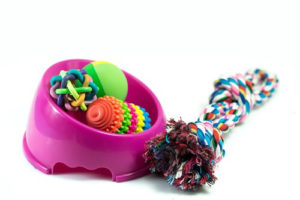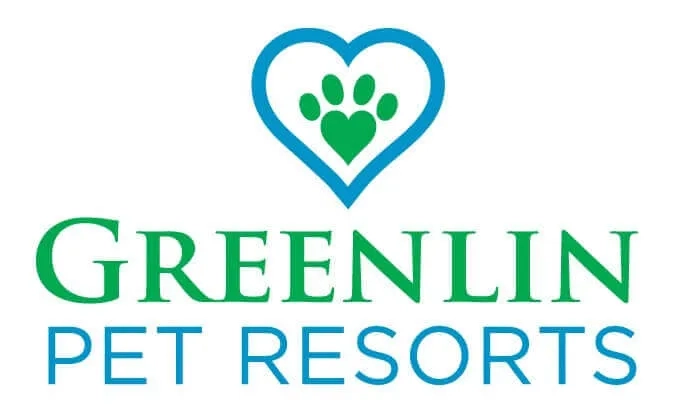Live With Pets? Take These Steps to Reduce the Risk of Anyone Getting Sick
We’re still in the midst of a global public health event, and so people have proper sanitization and hygiene on their minds more than ever. Thanks to public health advisories, we now know the importance of washing our hands after coming home from a public outing and taking other steps to prevent the spread of disease. However, what most people don’t know is that our pets can acquire diseases and sometimes spread them to us whenever we neglect to keep their spaces safely maintained.
Pets make our lives fuller than they would otherwise be, and so we want to do what’s best for them. That can involve going the extra mile to regularly tend to your pet’s personal hygiene and the cleanliness of their environment. Even the most diligent pet owners may overlook some of the important steps that we need to take to ensure the health of our four-legged friends.

Why is the Hygiene of Our Pets’ Environment Important?
When was the last time you cleaned your pet’s food and water bowls with soap and water? Have you sanitized your pet’s toys lately? Though these tasks may not take a long time to complete, it may be easy to overlook them, even for the most thorough housekeeper.
Keeping up with pet hygiene is not only important for our pets, but it’s also important for us as humans. The CDC (Center for Disease Control) reports that 6 out of 10 known infectious diseases are zoonotic, meaning that they can be spread from animals to humans.
Fortunately, hygienically caring for our pets can be achieved by following a few simple steps, which are essential for keeping both us and our pets happy and healthy. The following tips can help keep your house clean and your loved ones cared for:
1. Clean Food and Water Dishes Regularly
Though our pet’s food and water bowls may not be the number-one suspect when it comes to germy places in our household, a report from NSF International, a human health organization, claims that food and water bowls may be the fourth-germiest place in common households!
When pets eat and drink from their bowls, their saliva, which contains bacteria, is transferred from their mouths to the bowls. This can cause a potential hazard for our pets, as well as the human members of our households, especially children. Further, residue from the pet food attracts bacteria, fungus, and other microbes.
As a rule of thumb, it is recommended that you wash your pet’s food bowls in between meals, and thoroughly wash water bowls every two to three days. You can choose to wash your pet’s bowls in the dishwasher or by hand. If your pet has a self-watering bowl, it is important to inspect them regularly, as mold can grow inside and cause issues for your furry friend.
2. Clean Your Cat’s Litter Box Daily
Though cleaning your cat’s litter box may not be a task that anyone particularly enjoys, it is important to complete the task regularly. Litter boxes harbor a lot of nasty germs, including a microorganism that leads to toxoplasmosis, a disease that causes flu-like symptoms and can be harmful to developing babies, as it has been shown to cause birth defects.
Unfortunately, toxoplasmosis is not the only concern. Other parasites, such as hookworms and roundworms, are routinely found in animal waste and can be easily passed from pets to owners.
Emptying the litter box daily ensures that these threats are disposed of in a timely manner and decreases the risk of encountering the germs and bacteria that can breed in such an environment. It also decreases the risks of your cat “holding it” and causing health issues like megacolon — not to mention them going to the bathroom in undesirable places.
Not only should you remove the waste from your cat’s litter box, but it is a good idea to wash it with soap and water regularly, as well.
3. Clean Your Pets’ Outdoor Spaces
In the same vein as cleaning your litter boxes, it is important to ensure that your backyard, or wherever your dog may use the restroom, is cleaned regularly. This becomes especially important if you have children, who may be more likely to put their hands in their mouths after touching waste.
While cleaning your yard, you may want to employ devices such as pooper scoopers, to ensure you don’t come in contact with your dog’s fecal matter, which can contain many health hazards, such as the bacteria E. coli or salmonella. If you don’t have a pooper scooper, it is suggested that you use gloves or plastic bags in order to prevent your hands from touching the waste, and you should always wash your hands thoroughly with hot water and soap after you have completed the task.
4. Wash Your Hands After Contact
Part of showing our pets love and affection involves giving good, long belly rubs and lots of pets and treats. This is an important part of being a pet owner, as your pet craves this positive interaction with you.
However, after you are done playing, feeding, or picking up their waste, it is imperative that you remember to wash your hands. Pets don’t bathe nearly daily like we do (which would be bad for their skin and coat), and their fur can harbor germs. Accordingly, the CDC recommends washing your hands with warm, soapy water for at least 20 seconds after contact with your furry friends. Thorough hand-washing can help prevent the spread of disease and germs that your pet may be harboring.
If you have children, it is important to teach them to wash their hands regularly after interacting with your pet. In order to do this, you may want to leave soap or hand sanitizer in various places of your house to make it easier and more convenient to clean your hands after pet interactions.
5. Wash and Replace Toys
Though it may not seem immediately obvious, washing your pets’ toys on a regular basis is encouraged. If dog toys are left wet after some slobbery play, for example, they can become a breeding ground for bacteria, fungus, or mold, all of which could cause issues for your pet or could even cause skin irritation for humans, according to Dr. Ng, who is a professor at the University of Tennessee’s College of Veterinary Medicine.
You can wash hard toys with a mild, diluted cleaning solution or just plain old hot, soapy water. If your pet is more partial to soft toys, those can be tossed in the washing machine if they are still in good condition.
Additionally, it is a good idea to wash your pet’s collar on a regular basis — at least every four to six weeks, or every time your pet gets groomed.
Visit Greenlin Pet Resorts
We know you work hard to keep your home safe and clean for your pet — and we want to be able to provide a clean and safe space for your furry friend when you need to be away. At all six of our convenient Greenlin Pet Resorts, located throughout central Pennsylvania, cleanliness is our standard. Whether your pet is staying with us for a short visit or a longer one, we make sure to provide clean water, fresh food, and clean environments for your four-legged companion. We also sanitize locations daily using CDC-recommended best practices.
Whether you need dog daycare, pet boarding, or other services, we are here for you! Contact us today to meet our friendly staff or arrange a tour at any one of our six locations. We can’t wait to start making memories with your pet.
